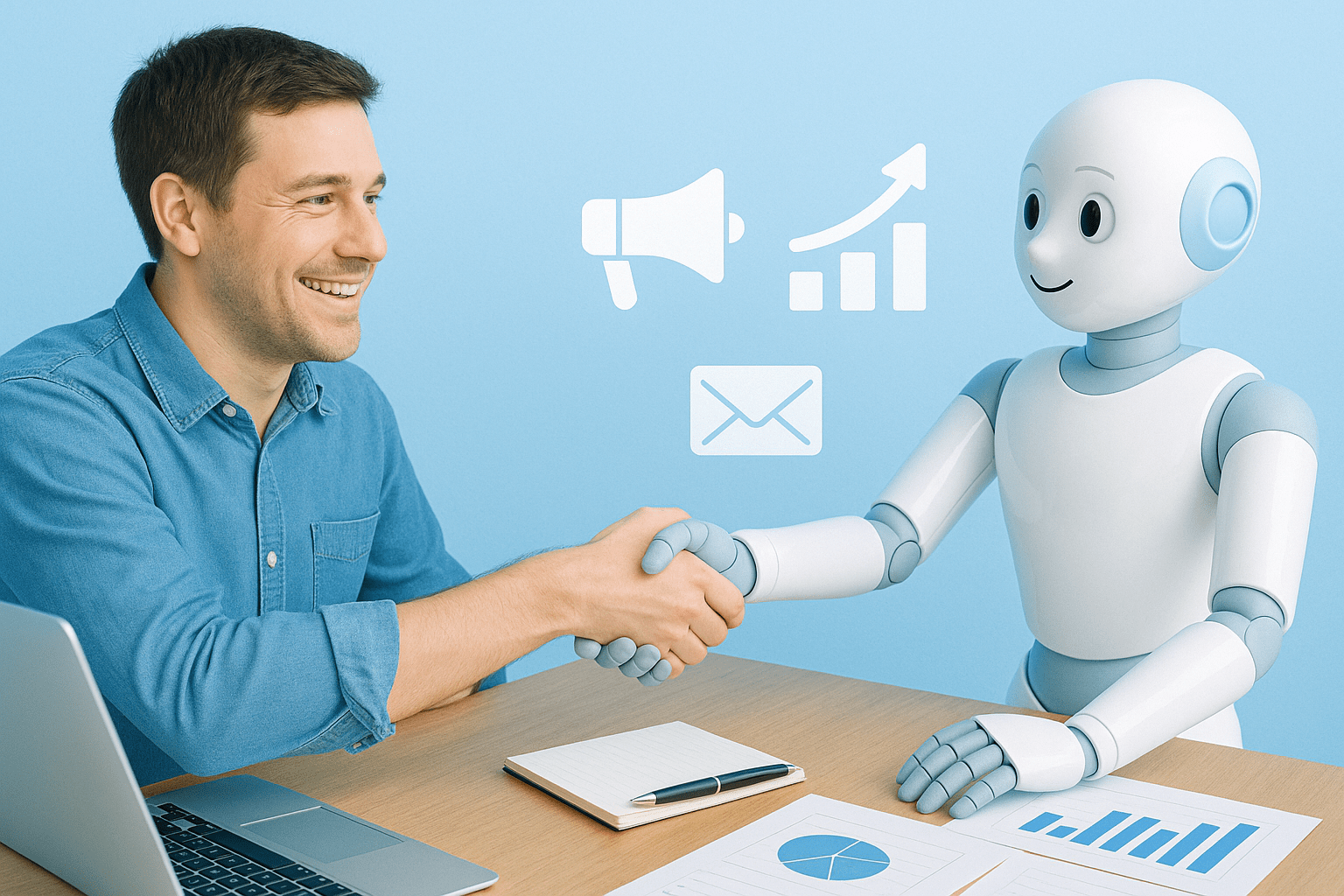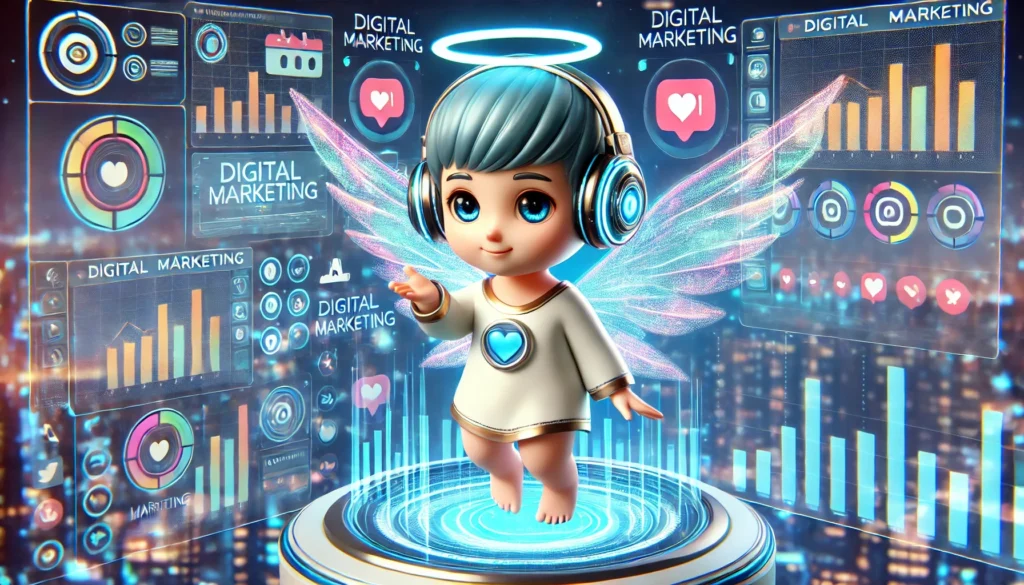The rise of artificial intelligence (AI) is undoubtedly one of the most impactful developments of the past decade. It has transformed industries worldwide — and marketing is not exception. And the pace of development is just growing. Even as I write this article, new tools, techniques, and ideas are being born.
Like with any innovation, a wave of uncertainty and bold headlines are prevalent: What will the future of marketing look like? Will there still be a place for marketing managers, content creators, designers, and marketing agencies? That’s why, we at Marketing Angels, we want to share our perspective.
Self-Service Tools Are Nothing New
Just over a decade ago, platforms like Google Ads (originally AdWords) and Meta Ads (previously, Facebook Ads) launched tools empowering businesses to develop and manage their own campaigns — without involvement of media agencies or advertising representatives.
This marked the beginning of digital marketing as its own discipline. Around the same time, demand for content creators, digital marketing professionals and marketing agencies surged as social media usage exploded. These were entirely new roles and professions that universities weren’t yet teaching.
Over the years, targeting options became more advanced, and the number of ads skyrocketed. In 2007, an average person saw around 3,000–5,000 ads a day. By 2025, that number has grown to nearly 10,000, largely driven by social media and digital advertising.
Contrary to what many thought, automation didn’t reduce the workload, but made it more specialized and complex. The tools (like Google Ads and Meta Ads) also became more powerful and harder to master unless you self-train and work with them daily.
What AI Can and Can’t — Do in Marketing
According to a McKinsey study, by the end of 2024, 71% of businesses were already using generative AI tools — up from just 33% in early 2023. Of those, 42% applied AI specifically in marketing and sales. At the same time, 45% of companies also reported issues with AI produced data, e.g. inaccuracy.
While it might seem that AI can do everything — write copy, create visuals, generate video, it still requires a lot of work to separate the wheat from the chaff. In Marketing Angels, we’ve tested hundreds of tools across many areas — from content translation to campaign optimization. And honestly? Around 95% of tools don’t fully deliver on their promises. (Yes, images with three arms or six fingers still happen)
We previously shared our favorite AI tools — you can still find the list here.
How AI Can Free Up Your Resources On Daily Basis
We believe AI won’t replace humans — but when used wisely, it can greatly boost productivity and results. For example:
- Faster research
AI can process vast amounts of information and summarize key insights faster than a search engine — or remember a trip to the library some time ago. - High-volume in short time
AI doesn’t get tired. It works 24/7. Previously, a visual campaign might require a team of creatives and weeks of work. Today, campaigns demand frequent content refreshes and multiple visuals and layouts. AI helps generate these faster. - Advanced data analysis and optimization
AI can scan large datasets to uncover performance insights and optimize campaigns in real time. Combined with an expert’s strategic eye, it’s a powerful combo.
After implementing AI-based Google Ads optimization for one of our e-commerce clients, we saw a +43% revenue increase and a +61% boost in ROAS within just one month — all while reducing ad spend.
What AI Still Can’t Do for You
When using AI, remember that AI relies on existing patterns and popular practices. It doesn’t generate anything truly unique — but it can spark ideas and support creative thinking.
Generic AI tools don’t know your product, tone-of-voice, or brand visual identity — unless specifically trained on them.
Mistakes in both language and data are still common, so human review is essential. And at the end of the day, remember that AI can provide input — but it can’t make decisions for you.
Final Thoughts
AI isn’t a magic wand. It won’t do everything for you. But it is a powerful tool — especially when combined with expertise, strategy, and experience.
New AI tools emerge daily, and staying ahead requires knowing which ones truly work. That’s where a seasoned partner can make all the difference.
Of course, you can dive in yourself — test, learn, and evolve. Just be ready to do it consistently, because the AI world changes fast.
AI isn’t a threat to marketing — it’s an effective ally.
Just like calculators didn’t destroy accounting but helped make it faster and more accurate, AI can help marketing become smarter, more data-driven, and adaptable.
Ready to make AI work for you?
We’ve already identified tools that truly deliver. Book a chat with our team and discover how AI — paired with expert strategy — can elevate your marketing results.








